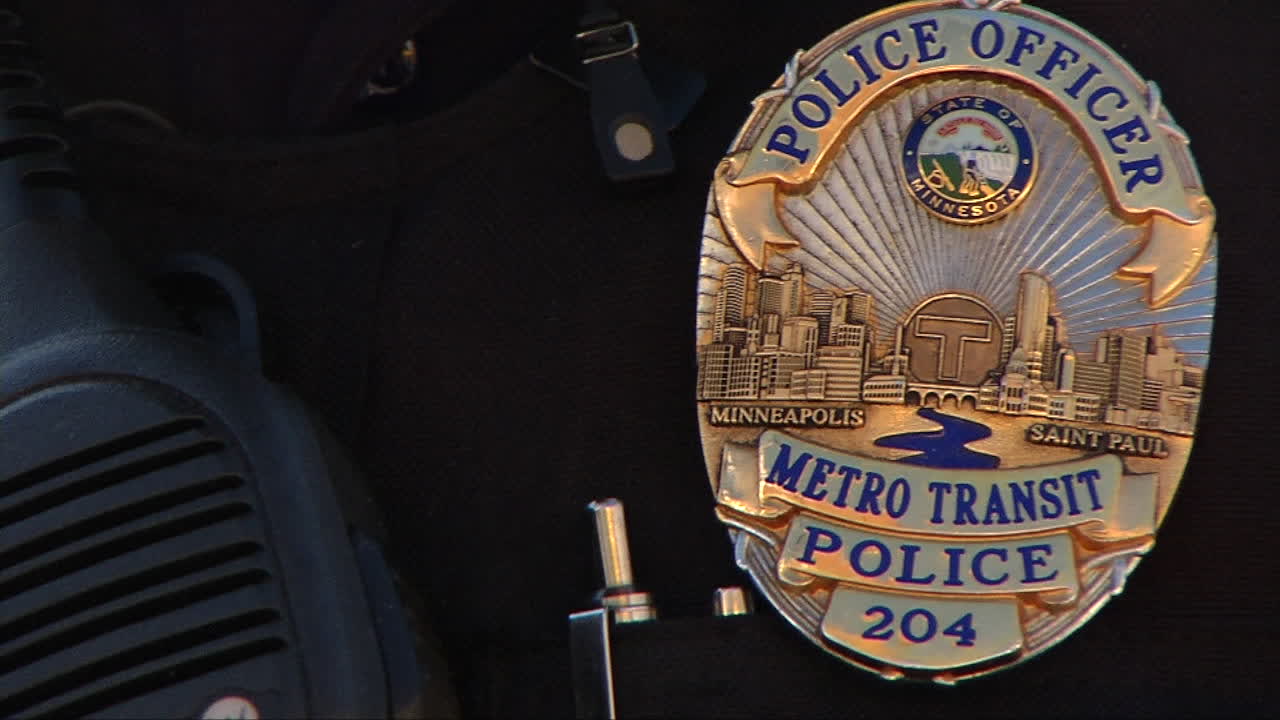Metro Transit officers start enforcing fare payments, violators to be fined up to $35

A Metro Transit Police Department officer's badge. (KSTP/file)
Metro Transit riders are now being asked for proof of fare payment, and those who don’t pay will be issued citations.
The change started Monday morning, with Metro Transit officials saying 23 people were ticketed from 7-11 a.m.
Until a recent law change, only a police officer could write a misdemeanor citation for fare evaders. Now, community service officers (CSOs) will issue fines of up to $35 for first-time non-payment offenders. A second violation will be a $55 fine and a third offense is $75 as well as a 60-day ban from transit service for 60 days. A fourth and any subsequent violations will be a $100 fine and a four-month ban.
CSOs — uniformed members who are working to become police officers — will be working the Blue and Green lines and will not be giving warnings before issuing fines. Eventually, that will expand to rapid transit and bus routes.
In the past, riders have told 5 EYEWITNESS NEWS that they believe fare evaders contribute to violent crime and drug use on trains. Monday, some weren’t sold that it will create a safer environment.
“Honestly, not really, but I will say at the very least it’s a step in the right direction,” Jazelle Henry, a frequent Metro Transit passenger, said. “It will make people who aren’t supposed to be on the train not on the train.”
“It’s very important,” Renard Thompson, another passenger, said. “Today, it was just a bad day for me, man,” he added, noting he didn’t tap his card and got a ticket.
The agency hopes fare enforcement will help at least a little with safety and efficiency.
“It’s one of many steps we’re taking to make a more welcoming and positive customer experience,” Metro Transit General Manager Lesley Kandaras said Monday.
The agency is also looking at other ways to fight crime.
Private security guards have been added to the Lake Street-Midtown and Franklin Avenue Stations.
Metro Transit is also studying the possibility of adding gates and turnstiles at four other locations.
RELATED: New calls to ‘enclose every station’ in response to crime on Twin Cities light rail
Metro Transit also shared reminders of how riders can pay their fare, including through the app, adding value to a Go-To Card, or at the ticket machines found at light rail and Bus Rapid Transit (BRT) stations.
Regular fares allow riders to take as many trips as they want for 2.5 hours while all-day passes allow riders to make unlimited trips from the first ride up until 2 a.m. the next day.
Reduced fare programs are available for youth, seniors and Medicare card holders. The Transit Assistance Program also makes $1 rides available for those who qualify.
CLICK HERE to learn more about Metro Transit citations.
Riders with other questions can call Metro Transit at 612-373-3333 for information on customer relations.